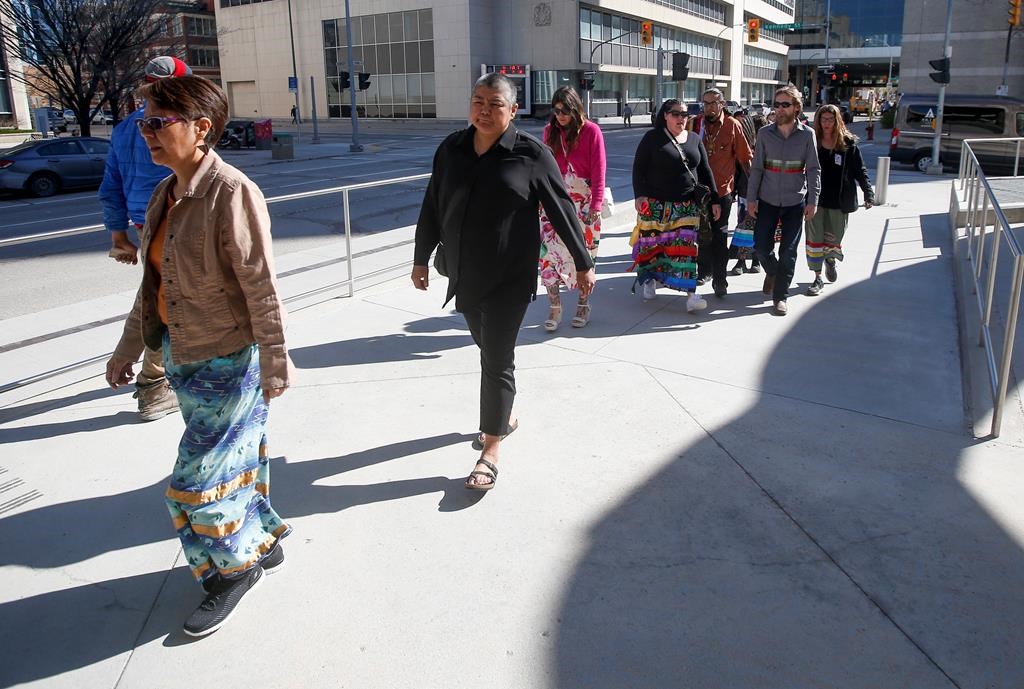In 43 minutes, top CEOs earn more than average Canadian’s annual salary: report
Posted January 4, 2023 12:58 pm.
Last Updated January 4, 2023 1:04 pm.
Canada’s 100 highest-paid CEOs made more money in under an hour in 2021 than the average Canadian makes in an entire year.
The country’s top CEOs – who are mostly men – made an average of $14.3 million in 2021, smashing the previous record of $11.8 million set in 2018.
That’s according to a new report by the Canadian Centre for Policy Alternatives (CCPA).
“It’s not only a new record average high, but it’s also a new high in the ratio of CEO pay to the average worker, which hit 243 times this year,” said David Macdonald, a senior economist with the CCPA.
“This has been an ongoing trend. Not every year is an all-time high, but it’s been happening fairly regularly.”
CEOs were paid even if company underperformed
The CCPA says by 9:43 a.m. Tuesday, the top 100 CEOs in Canada already made more than $58,000. It’s a list that includes the heads of Canada’s biggest banks, grocers, telecoms, and natural resources companies.
One thing these companies have in common: they limit the CEO’s base salary, but make it up in bonuses. Eighty-three per cent of CEO compensation came as bonuses tied to performance.
But even if companies did badly, CEOs got paid.
“During the pandemic there was a lot of bad luck, a lot of CEOs lost a lot of money,” said Macdonald. “But half of top CEOs this year still made the list, either because they received government support, or because bonus formulas were changed to avoid the impact of COVID-19 on those bonuses.”
Policy proposals for governments
The report offers four policy proposals for governments, with one being the introduction of a wealth tax and another being the implementation of higher top marginal tax brackets.
There’s also a suggested limit on the corporate deductibility of compensation over $1 million, which Macdonald said could yield almost $200 million in federal corporate income tax revenue.
Then there’s a proposal to raise the capital gains inclusion rate to 100 per cent, which would mean taxing capital gains like regular employment income, while currently only 50 per cent of capital gains are considered income for tax purposes.
“We’ve allowed the wealthy to have their way in terms of policy that has made this inequality possible, and a lot of that influence has been on very favourable tax policy,” said D.T. Cochrane, an economist with Canadians for Tax Fairness. “Very favourable to them, which is very disfavourable to the rest of us.”
Would ultra-wealthy seek low-tax havens?
These proposals usually raise fears of the ultra-wealthy fleeing to low-tax havens overseas.
But Macdonald says that’s not what happens. He says most CEOs are promoted from within and unlikely emigrate easily. And Cochrane says even if money leaves, the rest of the economy doesn’t.
“That doesn’t mean the productive capacity leaves the country, it doesn’t mean our natural resources leave the country,” said Cochrane. “It doesn’t mean our labour capacity leaves the country. All the things we actually need to have a healthy productive economy, that stuff is still right here.”
The highest-paid CEO in 2021 was Nuvei chair and CEO Philip Fayer, who made almost $141 million in 2021 despite having an annual salary under a million dollars.
The number-two spot was held by GFL Environmental Inc. president and CEO Patrick Dovigi, who made more than $43 million in 2021.
The list’s floor has been rising as average CEO pay gets higher, said Macdonald; this year the lowest-paid CEO on the list was Cameco Corp.’s Tim Gitzel, at $6.7 million.
—With files from Xiaoli Li and The Canadian Press








